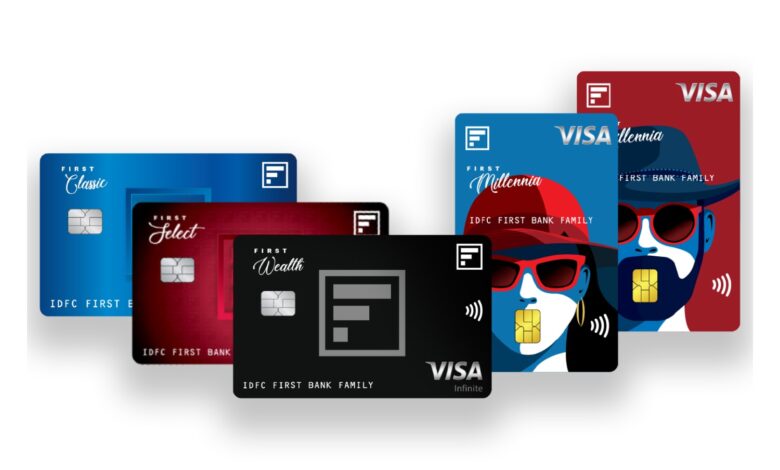
Having a credit card makes anyone’s financial life a lot more convenient. But, what needs to be taken care of is that this convenience comes at a cost. As a credit cardholder, you must make sure that you check all types of fees associated with your card before you invest in it. The number of fees you are paying for your credit card should never exceed the number of benefits you care to get.
IDFC Bank makes sure that its cardholders get assisted with the right information regularly. It takes care of its cardholders by making sure that its cardholders don’t have to pay extra fees by providing the required knowledge.
The following are different types of fees that are associated with using an IDFC credit card.
INTRODUCTION
IDFC Bank recently changed its name to IDFC First Bank. It is an integrated infrastructure finance company. It serves the needs of both corporate and private consumers in India. Mr. Amitabh Bachan is the brand ambassador of IDFC First Bank.
Different Types of fees associated with using IDFC Credit Card
- Cash Withdrawal Charges
- Cash withdrawal is an additional benefit provided to cardholders by credit card issuers. It allows cardholders to withdraw cash from ATMs within permissible limits.
- For the amount is withdrawn a cash processing fee is charged by the card issuers.
- Finance Charges
- Any charge that is charged for using the credit card as the interest that is charged when cardholders fail to credit card debt in full on every billing cycle is called a finance charge.
- The finance charge depends upon multiple factors, it is fixed or variable depending upon the card issuer.
3. Swipe Charges
- A swipe charge is a hidden charge that credit card issuers charge to process the transaction every time you swipe the card.
- The best way to avoid swipe charges is to use net banking or mobile banking to make the payment.
4. Annual Fee
- An annual fee is an annual maintenance charge, charged by the card issuer each year.
- In case you do not use the card, still, you will be charged an annual fee each year.
- The annual fees differ from card to card. Many no annual fee credit cards are also available in the market.
5. Late Payment Charges
- A high-Interest charge is charged if you fail to pay your credit card debt on time.
- The interest is charged on the outstanding balance.
6. ATM Withdrawal Charges
- A cash limit of 20% of the entire permissible credit limit is permitted by the card issuers to cardholders on credit cards.
- Cash Holders can draw money from an ATM up to the credit limit.
- Cash withdrawals are subject to finance fees from the date of withdrawal.
7. Reward Redemption Handling Fee
- A reward redemption handling fee is charged from the cardholders when they utilize the reward points for a transaction.
- The reward redemption handling fees could be fixed as well as variable.
8. Transaction Charges
- A transaction fee is a cost levied to execute a credit card transaction by payment processors.
- It depends upon various factors like the technology used to process payment etc.
CONCLUSION
Only through proper research and introspection of your needs can you select the best credit cards for yourself. Unlike IDFC First Bank, many credit card issuers hide the charges. You must refrain from investing in a credit card until all Terms and conditions are specified.
However, if you have already invested in a credit card whose fees exceed the benefits you are getting, then we would advise you to switch the card immediately.
Rewards are the biggest reason why people invest in credit cards, therefore, you should not only look for charges. But, should also match the benefits you are getting with your daily habits. A good travel card is of no use if you don’t like travelling. If you are a beginner in the world of credit cards, we would advise you to evaluate the Terms and Conditions before you apply. Also, Make sure that you don’t spend more than half of your credit limit and cultivate the right spending habits. A healthy usage of credit cards would also help you in building a good credit score.
Read Also: Which Bank of Baroda Credit Card is for Shopping and Everyday Use




